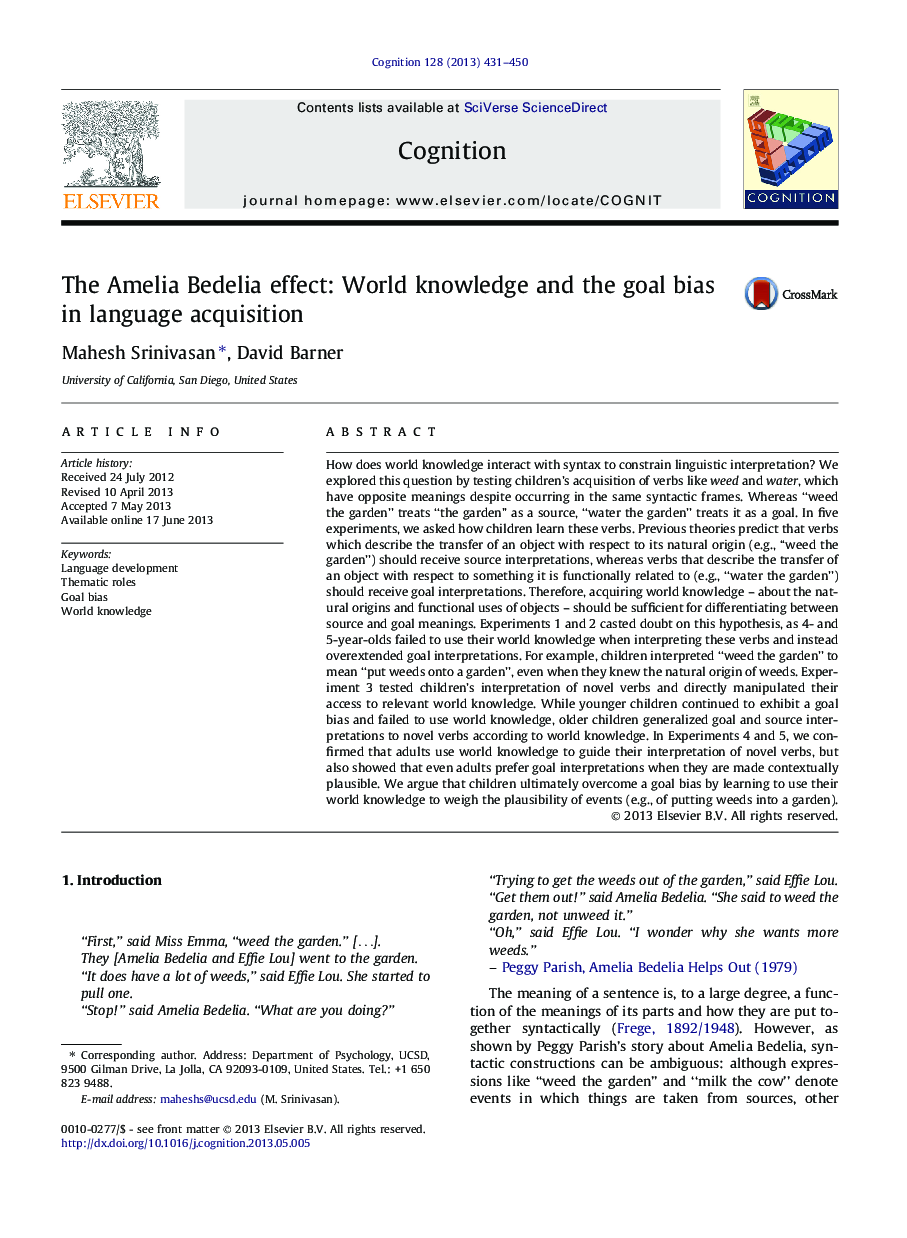| Article ID | Journal | Published Year | Pages | File Type |
|---|---|---|---|---|
| 10457624 | Cognition | 2013 | 20 Pages |
Abstract
How does world knowledge interact with syntax to constrain linguistic interpretation? We explored this question by testing children's acquisition of verbs like weed and water, which have opposite meanings despite occurring in the same syntactic frames. Whereas “weed the garden” treats “the garden” as a source, “water the garden” treats it as a goal. In five experiments, we asked how children learn these verbs. Previous theories predict that verbs which describe the transfer of an object with respect to its natural origin (e.g., “weed the garden”) should receive source interpretations, whereas verbs that describe the transfer of an object with respect to something it is functionally related to (e.g., “water the garden”) should receive goal interpretations. Therefore, acquiring world knowledge - about the natural origins and functional uses of objects - should be sufficient for differentiating between source and goal meanings. Experiments 1 and 2 casted doubt on this hypothesis, as 4- and 5-year-olds failed to use their world knowledge when interpreting these verbs and instead overextended goal interpretations. For example, children interpreted “weed the garden” to mean “put weeds onto a garden”, even when they knew the natural origin of weeds. Experiment 3 tested children's interpretation of novel verbs and directly manipulated their access to relevant world knowledge. While younger children continued to exhibit a goal bias and failed to use world knowledge, older children generalized goal and source interpretations to novel verbs according to world knowledge. In Experiments 4 and 5, we confirmed that adults use world knowledge to guide their interpretation of novel verbs, but also showed that even adults prefer goal interpretations when they are made contextually plausible. We argue that children ultimately overcome a goal bias by learning to use their world knowledge to weigh the plausibility of events (e.g., of putting weeds into a garden).
Related Topics
Life Sciences
Neuroscience
Cognitive Neuroscience
Authors
Mahesh Srinivasan, David Barner,
